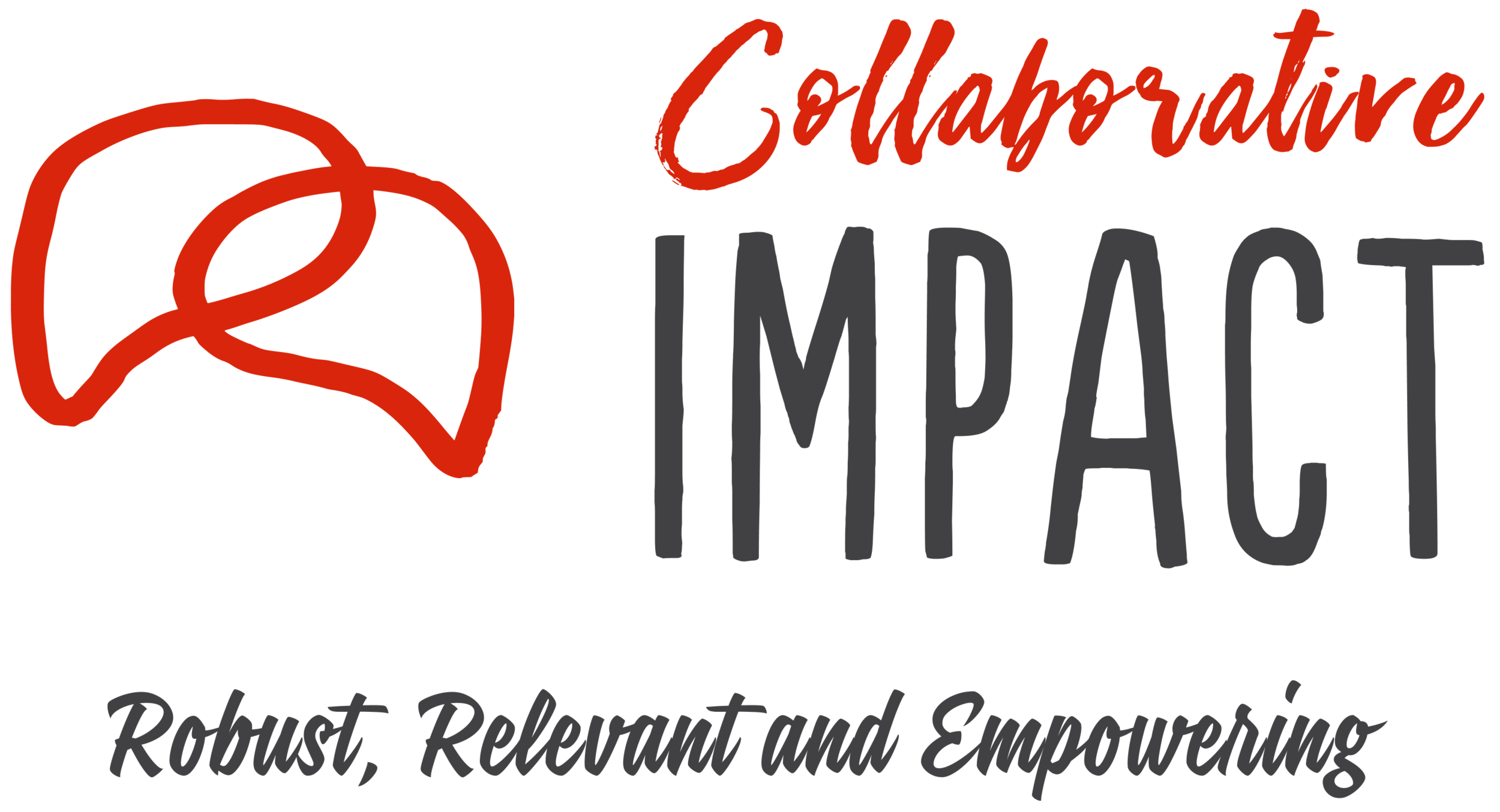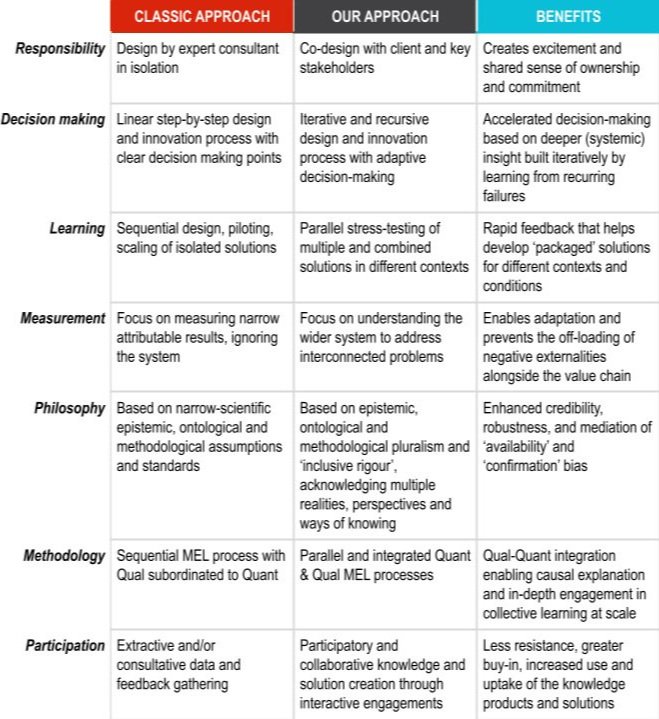OVERALL APPROACH
Systemic. We help our clients and their partners to see through the system (e.g. how behaviours and interventions combine and interact with each other and with the environment to affect change) and address the causes (not just the symptoms) to achieve transformative change and impact.
Participatory. We are also committed to an inclusive, collaborative and engaging process that helps clients and partners build shared ownership of problems and solutions, and develop shared lessons and insights around a common Theory of System Change.
Rigorously Innovative. We strive for the highest ‘quality of thought’ in combining various models and methods to generate robust and credible evidence with optimal learning value for all those involved and affected. Our approach embraces epistemic, ontological and methodological pluralism to uphold ‘inclusive rigour’, based on the premise that single truth claims don’t yield sustainable solutions.










![Double Diamond [4D]](https://images.squarespace-cdn.com/content/v1/5be90a21e7494039a4941b51/8bf90780-bae5-415b-a90d-9ed420d1a3e0/DSC08604.jpg)